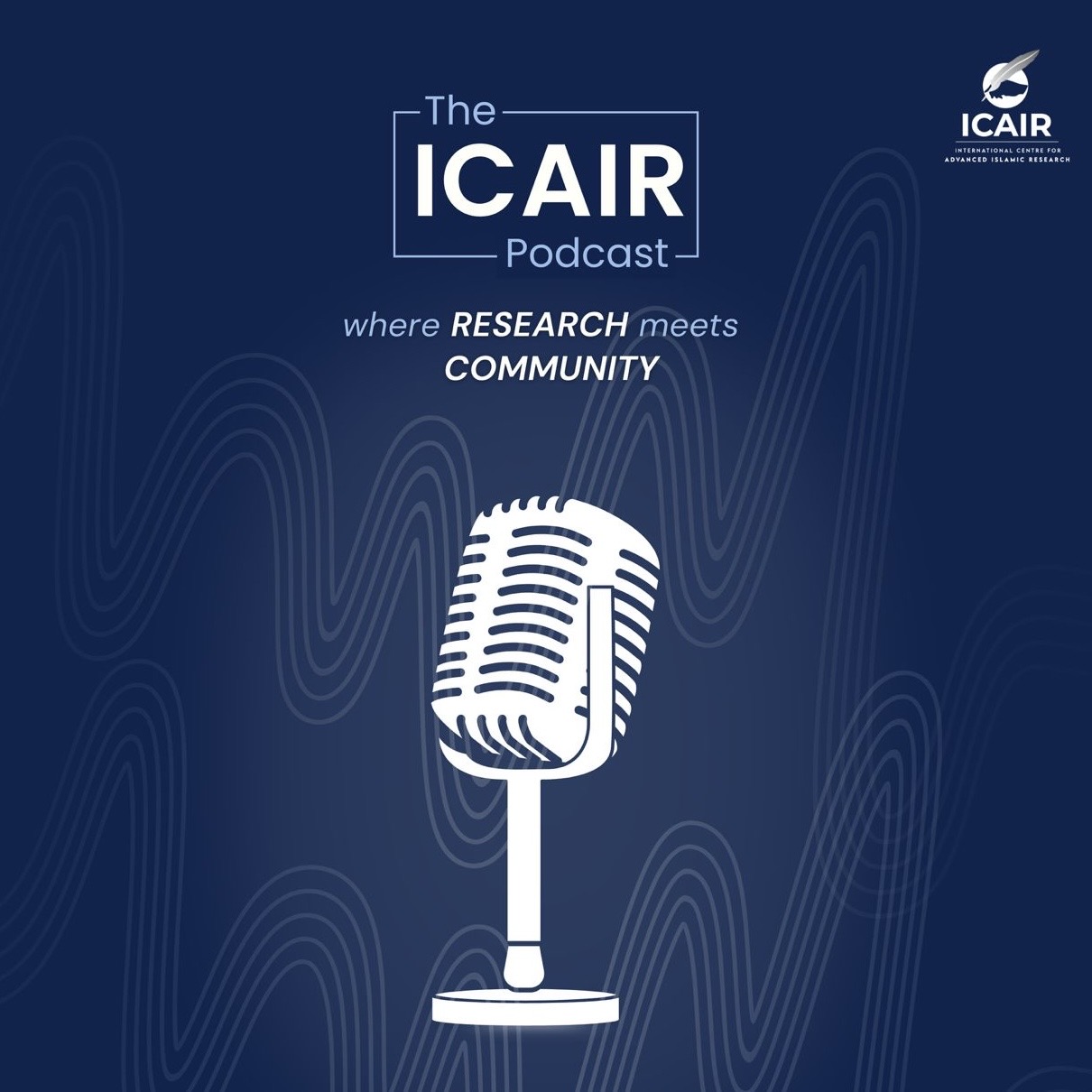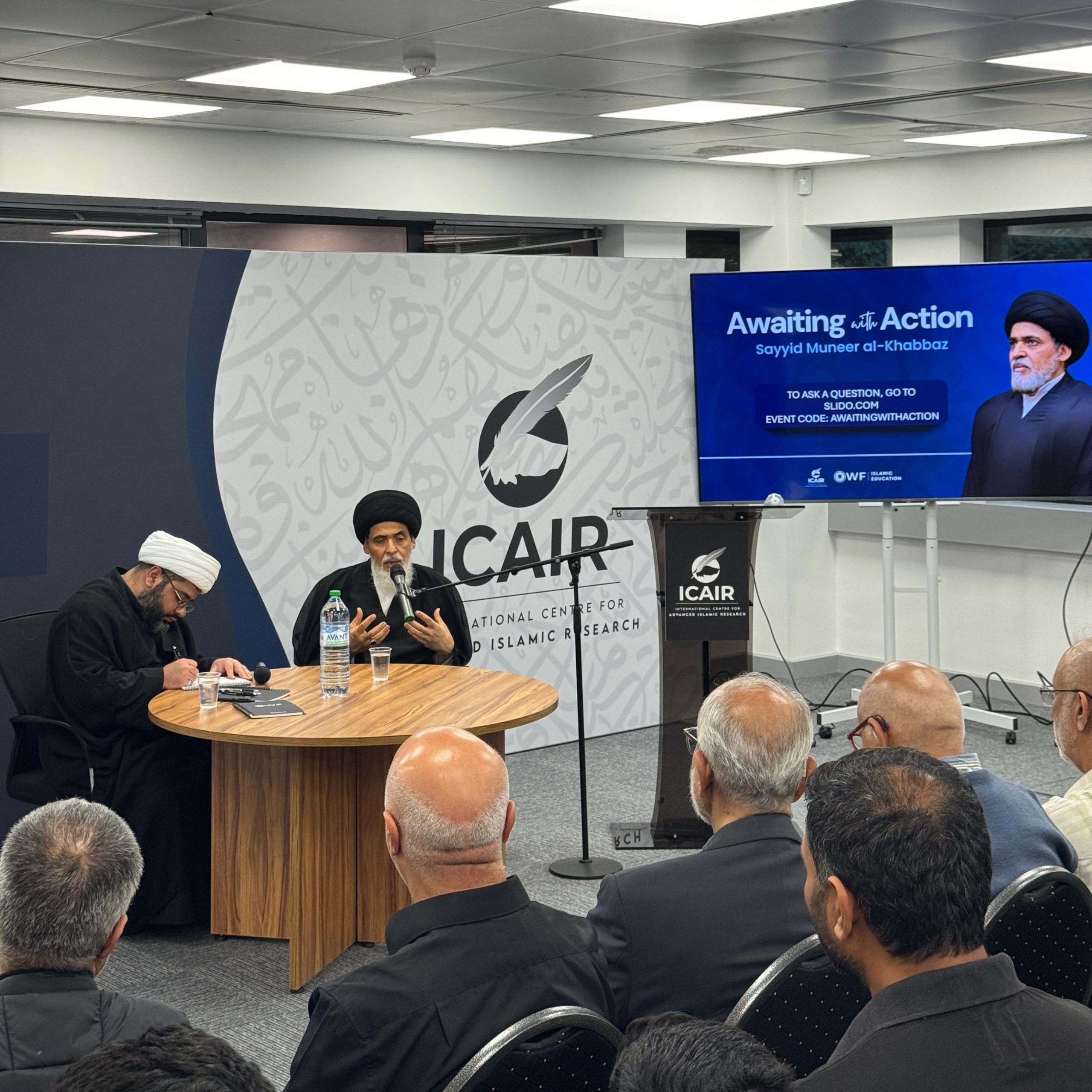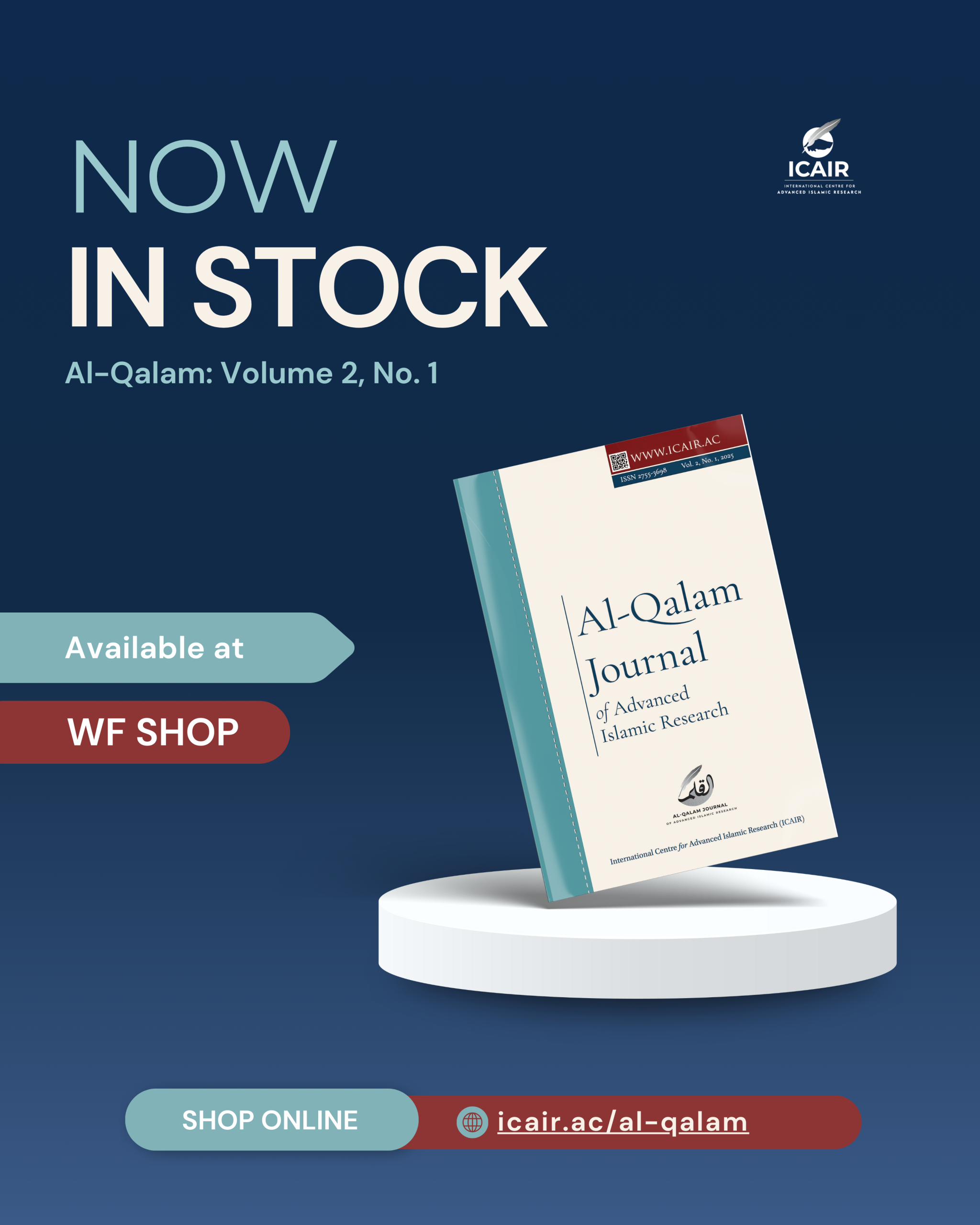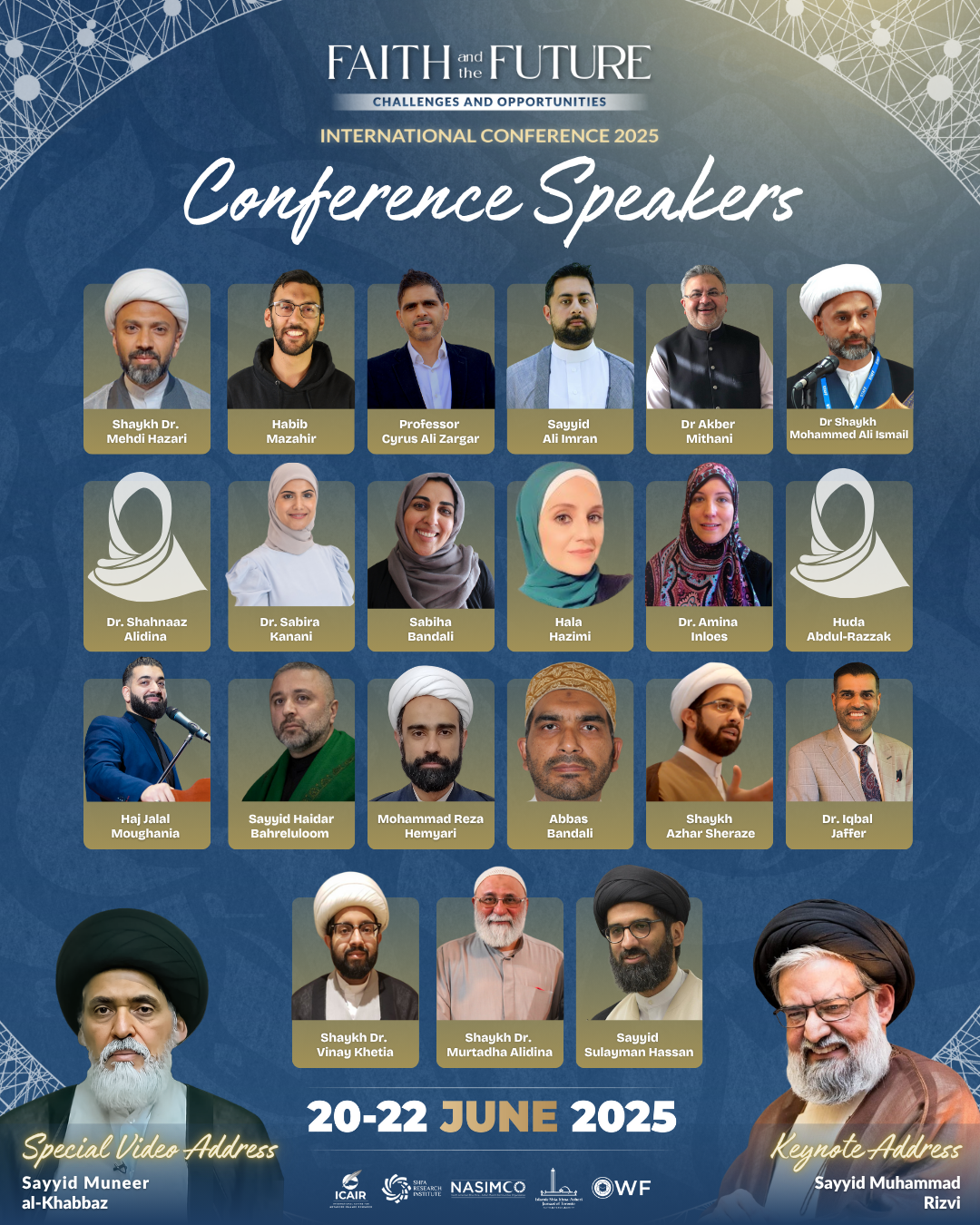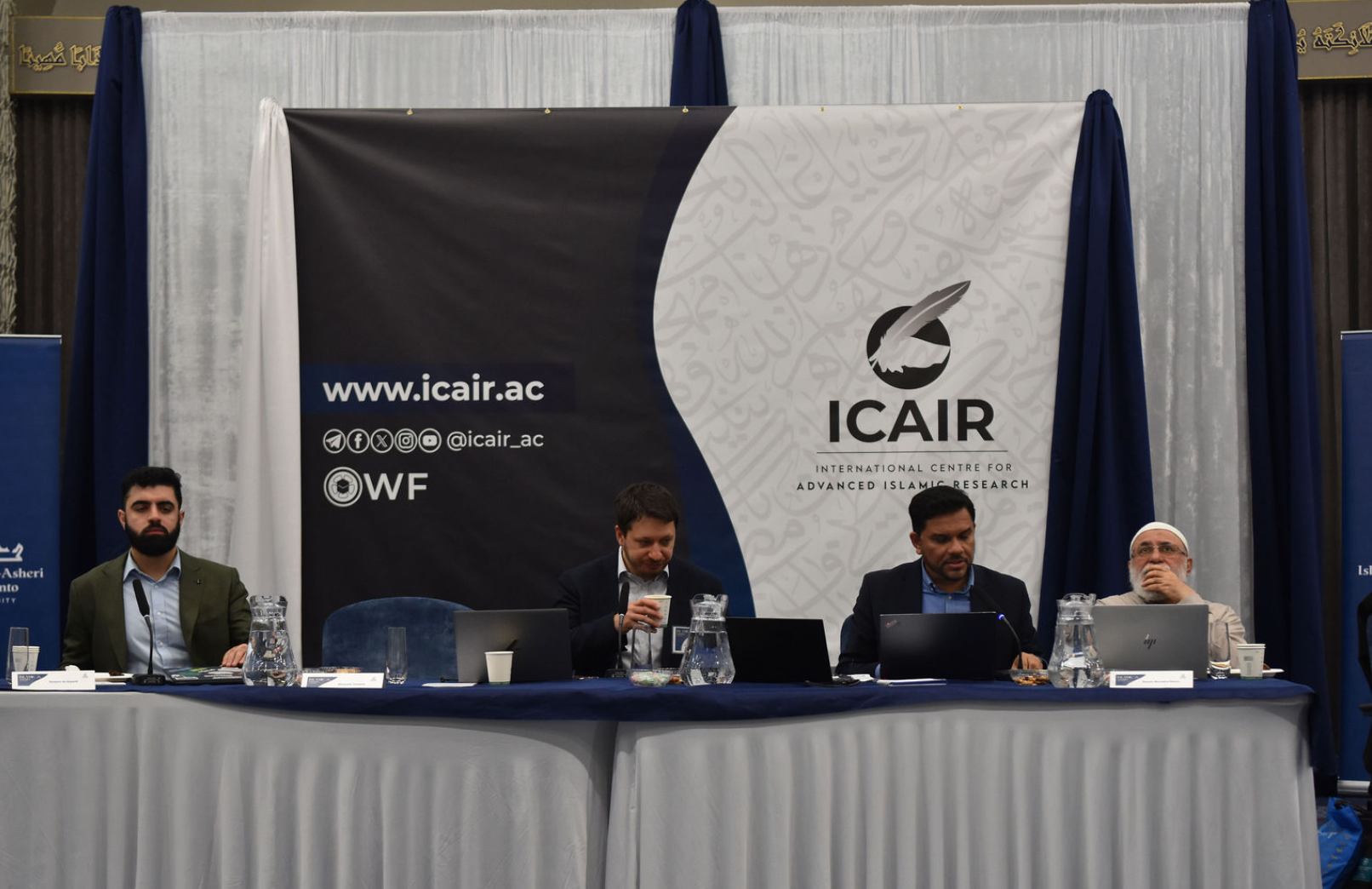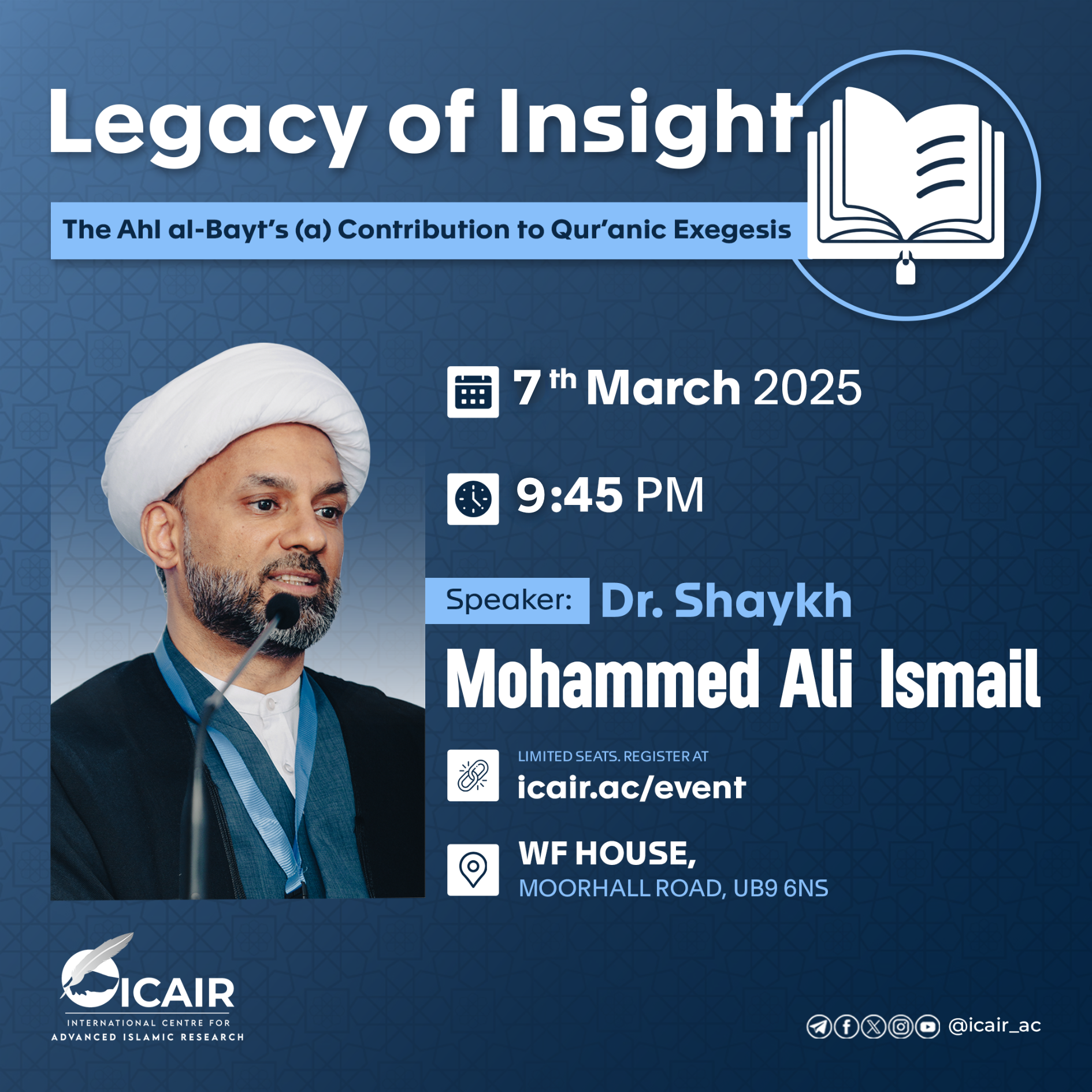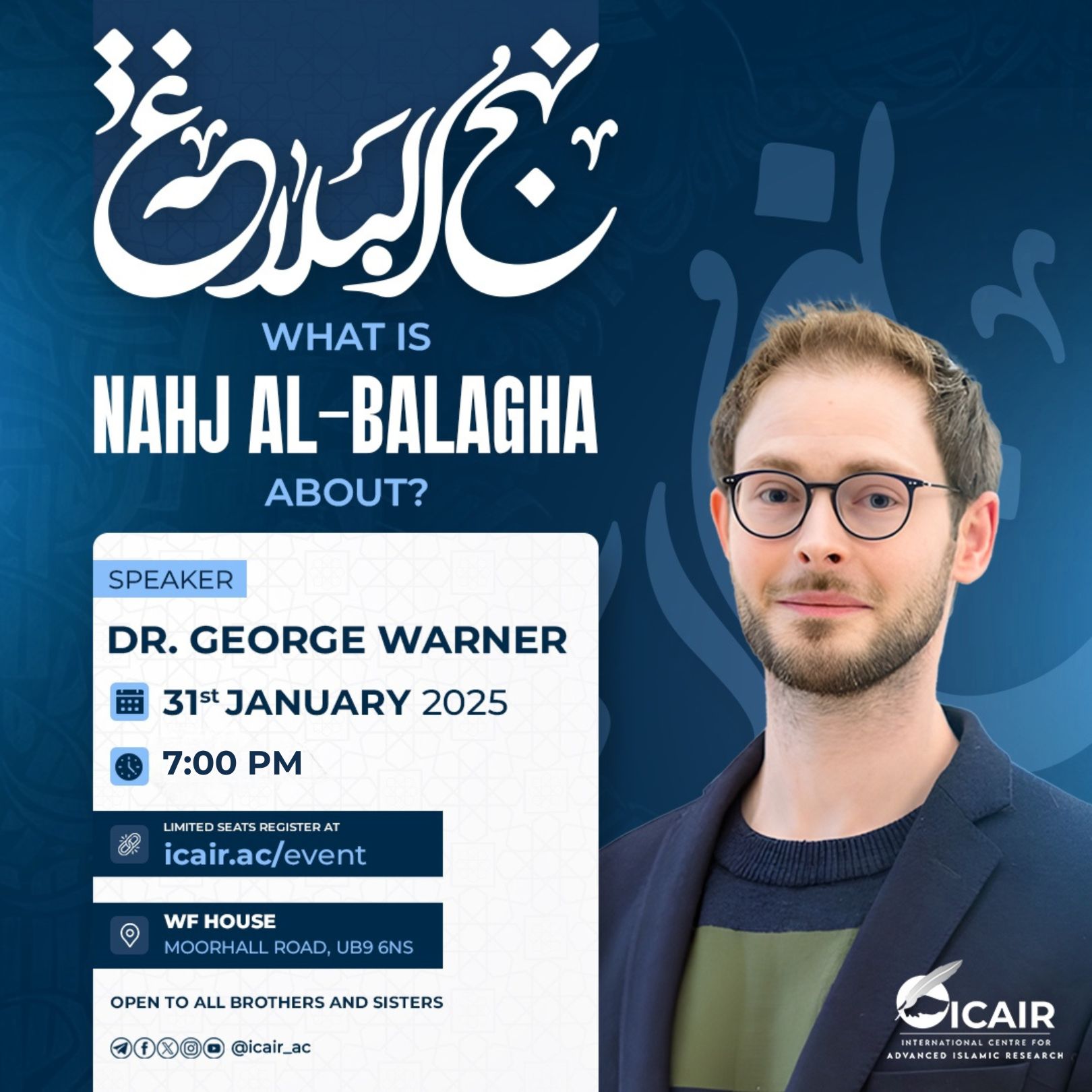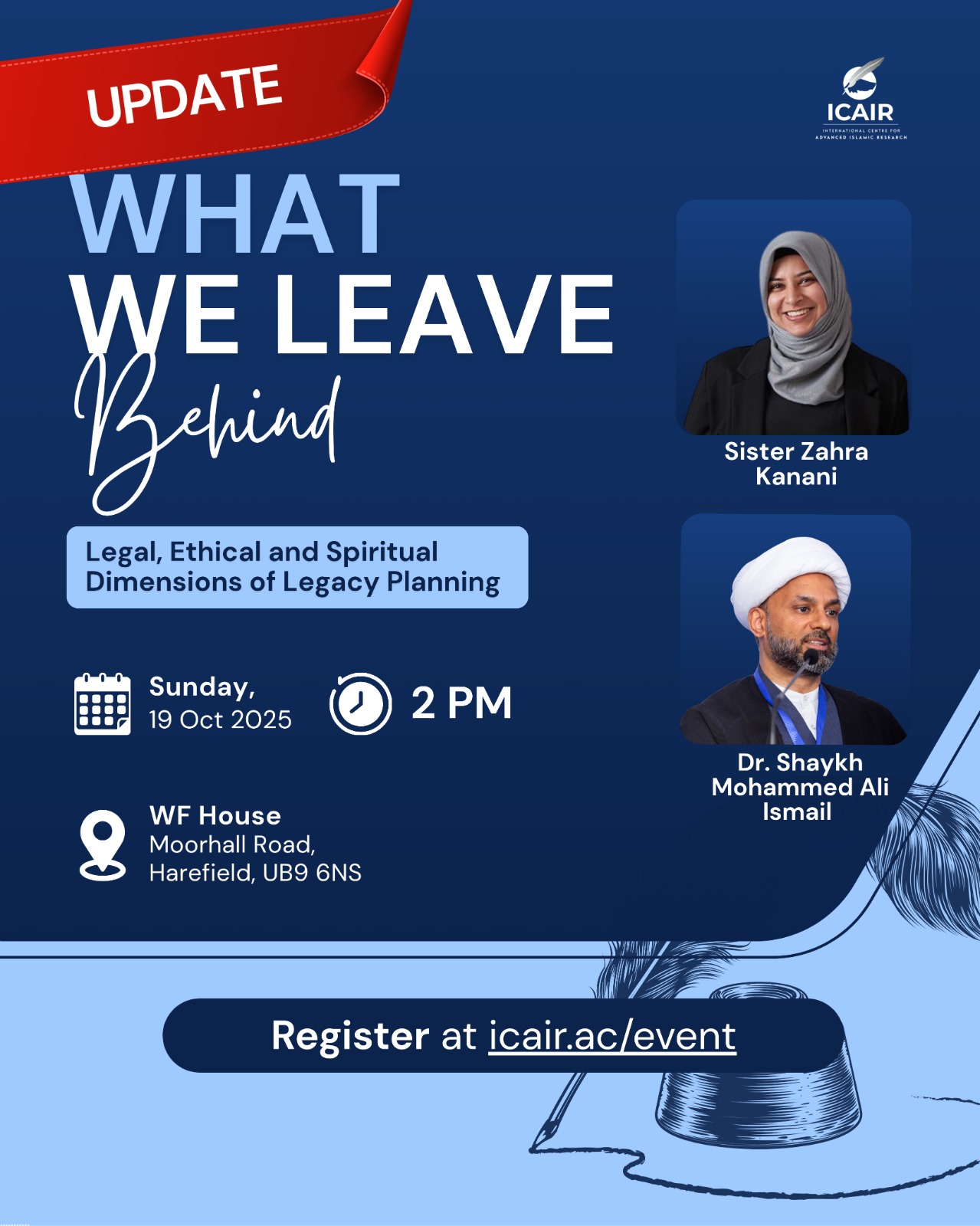
October 19, 2025
On Sunday, 19th October 2025, the International Centre for Advanced Islamic Research (ICAIR), in partnership with WF Legal & Compliance, hosted a thought-provoking session at WF House in London, addressing an important responsibility that we all face: planning for what we leave behind.
The event brought together an Islamic perspective and legal expertise to provide guidance on navigating wills, inheritance, and legacy planning with wisdom and foresight, ensuring both Islamic teachings, as well as legal requirements, are observed.
Dr Shaykh Mohammed Ali Ismail delivered a presentation entitled "Beyond Distribution: The Spiritual and Jurisprudential Dimensions of the Islamic Will," in which he reframed the Islamic will (waṣiyyah) as far more than a legal formality—revealing it as a spiritual covenant between the believer and Allah (swt). Drawing on Qur'anic verses, Prophetic traditions, and the teachings of the Ahl al-Bayt (a), he explored the moral and jurisprudential foundations of the will, including the one-third rule and the balance between spiritual accountability and family justice.
https://www.youtube.com/watch?si=B6RVVmD2gpsgSqaT&v=a1YFy272sc8&feature=youtu.be
Sister Zahra Kanani followed with "Wills, Succession and Inheritance Tax: A Muslim's Guide to the Law of England & Wales," providing practical guidance on how the law governs wills, probate, and inheritance tax. She explained the legal requirements for a valid will, the pitfalls of dying intestate, and the complexities of Inheritance Tax—including current thresholds and upcoming changes. Crucially, she addressed the tension points between succession law in England & Wales and Sharia-compliant wills, highlighting why professional legal advice is essential and how thoughtful planning can protect families from avoidable complications.
https://www.youtube.com/watch?si=gqKsRLgwN6lBrqSm&v=5lO203_d7OM&feature=youtu.be
The session concluded with a thoughtful joint Q&A, where attendees explored practical challenges including family provision, cross-border estates, and the complexities of honouring religious principles within a secular legal framework.
Both talks are now available to watch on ICAIR's YouTube channel for those who missed the event or wish to revisit the content.
https://www.youtube.com/@icair_ac


